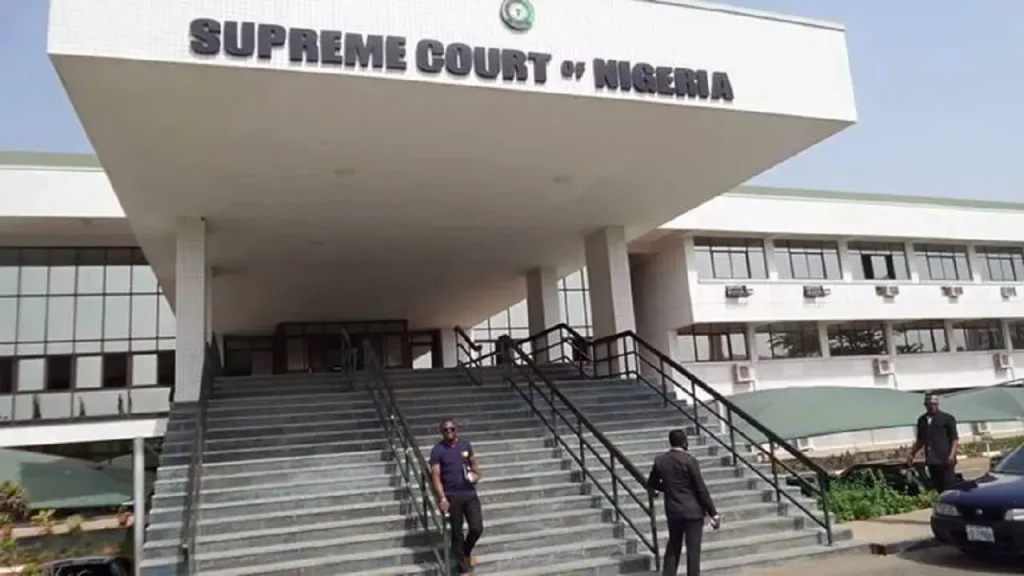The Supreme Court has scheduled June 13 for the hearing of a lawsuit filed by the Federal Government against the 36 state governors concerning alleged misconduct in the management of local government affairs.
Justice Garba Lawal fixed the date while addressing an application for the expedited hearing of the case, presented by Lateef Fgebemi, SAN, to ensure sufficient time for all parties to file their legal documents and exchange them.
Under the ruling, the 36 state governors are required to submit their respective defenses to the federal government’s lawsuit, which seeks full autonomy for the 774 local governments across the country.
Justice Lawal, leading a seven-member panel of the apex court, based the decision on the national urgency of the case and the absence of objections from the attorneys general of the states.
The court also directed the Attorney General of the Federation to respond within two days after receiving the governors’ defenses.
Furthermore, the eight states whose attorneys general were not present during the proceedings on Thursday — Borno, Kano, Kogi, Niger, Ogun, Osun, Oyo, and Sokoto — will be served with new hearing notices.
The Federal Government had initiated legal action against the 36 state governors over allegations of mismanagement in local government affairs. The Attorney General of the Federation, Lateef Fagbemi, brought the lawsuit to secure full autonomy for local governments, aiming to prevent abuses by state governors.
In the lawsuit designated SC/CV/343/2024, the AGF seeks a court order to prevent state governors from unilaterally dissolving democratically elected local government leaders. The governors were sued through their respective State Attorneys General.
The lawsuit, grounded on 27 grounds, argues that the Nigerian Federation, as established by the 1999 Constitution, mandates the President to uphold its provisions. The originating summons, personally signed by Fagbemi, has been scheduled for hearing on May 30.
The AGF seeks judicial authorization to channel funds directly from the federation account to local governments, bypassing allegedly unlawful joint accounts created by governors. Additionally, he requests an injunction to prevent governors from appointing caretaker committees in lieu of democratically elected local government systems.
Fagbemi argues that governors have a constitutional obligation to establish democratic systems at the local government level and cannot lawfully dissolve democratically elected local government councils.
In support of the originating summons, an affidavit, composed of 13 paragraphs and sworn to by Kelechi Ohaeri from the AGF’s office, asserts that the suit was filed under the Supreme Court’s original jurisdiction on behalf of the federal government.
The affidavit emphasizes that the constitution recognizes a democratically elected local government council and mandates that funds due to local government councils be paid directly to them from the federation account.
It contends that the failure of governors to establish democratically elected local government systems constitutes a deliberate violation of the 1999 Constitution, which they have sworn to uphold. Despite numerous efforts, governors have allegedly not complied with constitutional requirements, warranting federal government intervention.
The AGF warns that the continued disbursement of funds to governors for non-existent local government systems undermines the sanctity of the constitution and suggests that, under Section 162 of the Constitution, the federal government is not obligated to allocate funds to states where democratically elected local governments are absent.
(NAN)

